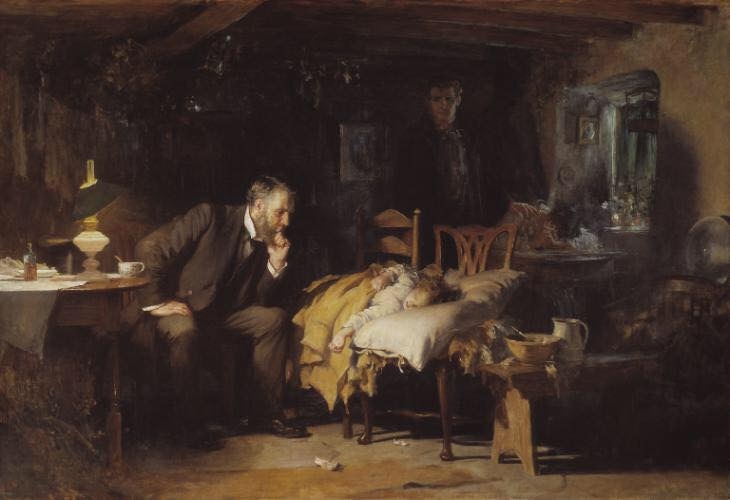As a doctor, I always wondered what the future held for doctors, given the advances in technology. The more i dwelled on this topic, I realised healthcare is being disrupted just like any other industry in the history of mankind, which I think is just part of evolution.
Let me explain - in fact we have two concepts to get a grasp of
1. Evolution of Medicine
Medicine has evolved from an art to a science.
Thousands of years ago, practitioners of medicine believed diseases were an imbalance in the “Humors” blood, phlegm, yellow bile and black bile of the body. Then we moved on to “Miasma theory” which believed in diseases were a manifestation of “miasma” or bad air in the environment. Doctors had to use their “intuition” to come to a possible diagnosis.
It was until Antonie van Leeuwenwhoek a dutch microbiologist in the 1670s, using a rudimentary microscope discovered microbes or germs which he called “animalcules” (tiny animals).
Finally now we know that infectious diseases are caused by “germs” or bacteria.
Once we had established the causal mechanism of a disease, in the case of an infection which we now know is caused by germs, medicine now has evolved as a science rather than an art. So in this example infections has moved from intuitive medicine to evidence based or rules based medicine. The next big shift in this paradigm is to what is called “Precision medicine”.
Type 1 diabetes is more in the realm of precision medicine, as we now know precisely that Type 1 diabetes is caused by lack of insulin secreted by the pancreas.
2. Disruptive innovation
“Disruption” has become the most abused buzz word in the tech world today.
Everyone wants to disrupt literally everything around them! But most of these innovations are efficiency innovations rather than truly disruptive innovations.
So what's a disruptive innovation?
Disruptive innovation is any innovation thats makes products or services thats were once expensive and complicated so that only a certain group of people could have access, into products or services that are simple, affordable, accessible and convenient to use so that a larger segment of the population have access.
Examples -
1. The mainframe computer getting disrupted by the minicomputer which got disrupted by personal computer like desktops and laptops which is getting disrupted by smartphones.
2. Big airline companies getting disrupted by low cost no-frills budget airlines.
And in healthcare models underpinned by medical insurance (U.S) or funded by the state (U.K, Canada, etc) doctors are disrupted by low cost care givers like Nurse practitioners, Physician associates to keep the cost of providing healthcare down.

In the future, doctors would find themselves operating in the box of “intuitive medicine” which is getting more and more complex as more patients are living longer with complex co-morbidities. An example would be a patient with high blood pressure, uncontrolled diabetes, who had a heart valve replacement, on remission from cancer, with wet macular degeneration who recently had a hip replacement who is getting progressively demented.
And as doctors use more of their intuition operating in the box of “intuitive medicine” makes doctors vulnerable to litigation for possible medical errors or negligence.
I would value your thoughts and insights.
Acknowledgement
Prof. Clayton Christensen, PhD.,
Harvard Business School.
Inventor of “Theory of Disruption”
Thanks to IBM for accepting me into their global entrepreneur program.
Dr. Anand Mani, FRCS,
Co-founder & CEO,
Free membership and no joining fee!
#empoweringdoctorsworldwide





